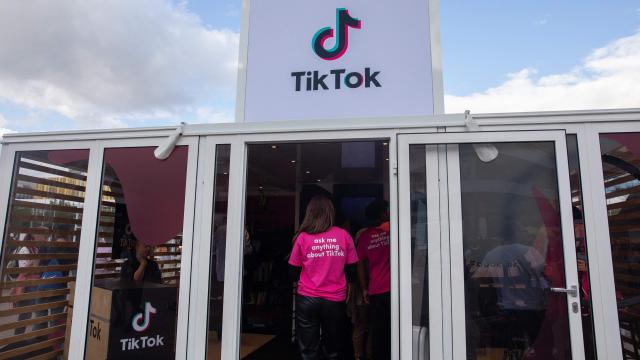I hope you’re in the mood for more people trying to sell you stuff while browsing social media, because that’s exactly what you’re getting this Christmas. Semafor first reported that select businesses in the U.S. are being asked to participate in the TikTok’s new shopping experience just as the world tilts ever more toward the economic black hole that is the holiday shopping season.
The official TikTok Shop Seller Centre site now lists the U.S. as a place for businesses to register. These businesses will soon be able to sell their goods directly through the TikTok app, meaning the app and its China-based owners ByteDance want to bypass other e-retail giants like Amazon all while keeping users on the app for longer. An unnamed source with knowledge of the matter also told Semafor that TikTok started testing the TikTok Shop in the U.S. this week, and that international sellers will soon also put their goods up on TikTok Shop as well. The service has already been available in the UK and select Southeast Asian countries such as Indonesia, Thailand, and Vietnam.
In an email statement, a TikTok spokesperson told Gizmodo:
“We are always guided by demand and exploring new ways to enhance the TikTok experience. We’ve seen the positive impact of TikTok Shop, and we’re excited to continue experimenting with this new commerce opportunity to support businesses of all sizes and enable our community to discover and engage with products they love.”
This effort is apparently all part of what’s been dubbed “Project Aquaman,” which despite the incredibly fishy name is actually a push to turn the app into a kind of bazaar for online retail, where influencers run their own shopping stall through their creator account. China is a major centre for a kind of livestream shopping experience, where high profile creators shill products and offer deals to their legion of followers. It has become a multi-billion dollar industry in that country, and could prove extremely lucrative if TikTok manages to make it popular in the U.S.
The app is using everything at its disposal to try and make it to the top of the digital retail heap, including user data according to an October report from MarketWatch. The company has been reportedly buying data on users’ wishlists and shopping carts while also targeting users with algorithmic-based ads for items they may want to buy.
Recent reports based on internal documents have also shown that TikTok has silently been ranking influencers based on their willingness to promote products. These scores are meant to give businesses an idea of which creators are more willing to, and are most effective at, selling products. That’s not to say sponsorship deals haven’t already become a staple for influencers, such as YouTube creators who need the extra money to supplement what they make from Google AdSense. Manny Ortiz, who runs the photography YouTube channel, recently told Insider he makes five times as much from brand sponsorships than he does from ads or affiliate sales.
All this is gearing the company up for a massive push into e-retail. Axios reported last month that TikTok was looking to build its own fulfillment centres in the U.S. Another report first published by Business Insider noted that TikTok filed a U.S. trademark application for technology that will allow users to shop and pay via voice. As dumb as that might sound at first glance, it does point to the company’s willingness to throw a variety of noodles at the wall, hoping one of them will stick long enough to give them a foothold into the world of e-commerce.
That’s not to say other social apps haven’t already entered the shopping arena. This year, Instagram added the ability for users to buy directly from Instagram Direct sellers through the chat function. Other apps such as Snapchat have introduced different ways for sellers to reach users as well.
At the same time, Instagram’s owner Meta has floundered alongside many of the world’s biggest tech companies and recently announced it was laying off 11,000 workers. In his message to staff, CEO Mark Zuckerberg said that even though company revenue soared during the pandemic, thanks to online retailers, it “obviously didn’t play out the way I expected or that any of us hoped.”
And though TikTok is looking to hit the monolith that is Amazon where it hurts, it seems like any blow the app company could detail to the retail giant would be more like striking a bruised fruit. Amazon has lost a record $US1 ($1) trillion in stock value this year.
